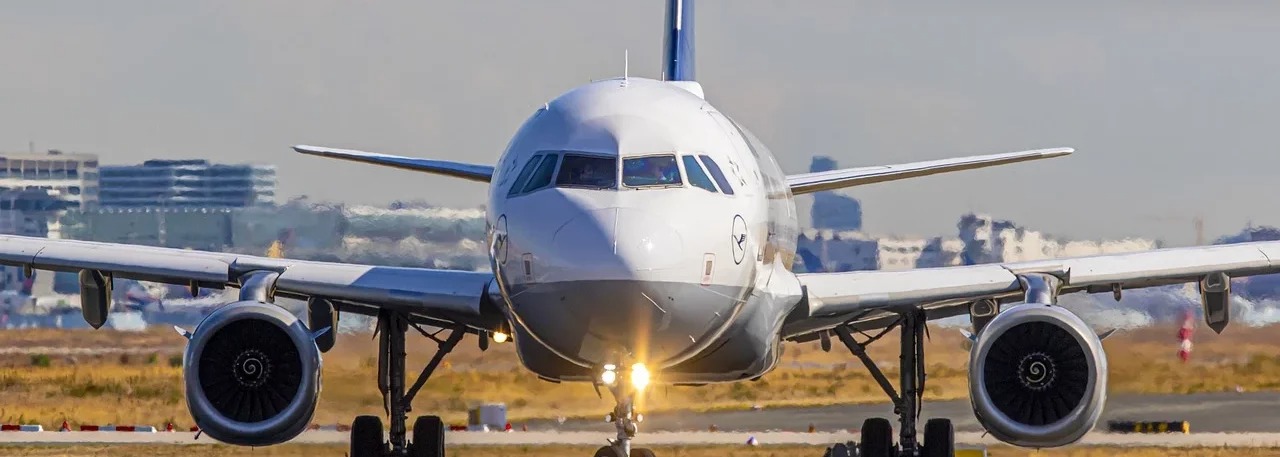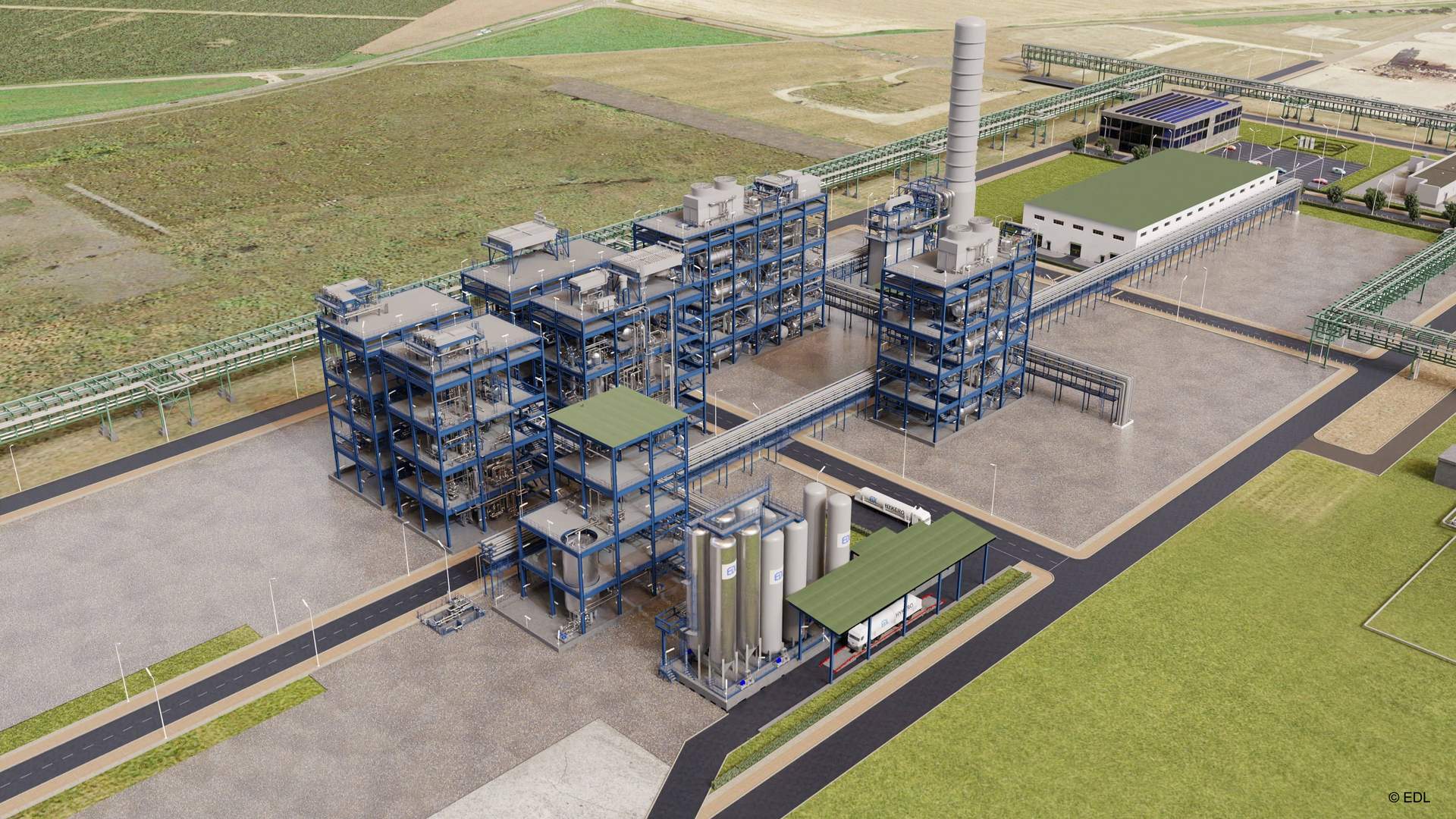
Johnson Matthey and bp's Technology Picked for Record-Breaking SAF Plant
Published by Todd Bush on April 12, 2024
The airline sector contributes significantly to worldwide carbon pollution. Sustainable aviation fuel (SAF) provides an encouraging remedy, and there has been substantial progress with the unveiling of Louisiana's largest Fischer Tropsch SAF production facility. This initiative, involving DG Fuels, Johnson Matthey (JM), and bp, marks a pivotal moment for the sector.

DG Fuels Chooses Cutting-Edge Technology
DG Fuels chose Johnson Matthey and bp's advanced Fischer Tropsch (FT) CANS™ technology for their Louisiana facility. This process converts waste biomass such as sugarcane residue into synthetic kerosene, an essential element of sustainable aviation fuel (SAF). With an impressive annual production capacity of 600,000 metric tons, the plant surpasses previous FT SAF facilities and represents a significant advancement in the industry.
The size of this project will bring about big changes. When it starts running in 2028, the facility should make sufficient SAF for more than 30,000 transatlantic flights each year, which is a large part of the flights on that route. This will lead to a substantial decrease in carbon emissions for the airline sector.
The utilization of waste biomass as raw material enhances the sustainability of this project. It decreases dependence on fossil fuels and lowers greenhouse gas emissions in comparison to traditional jet fuel, supporting worldwide endeavors to address climate change and attain net-zero objectives in the aviation industry.
The production of sustainable aviation fuel (SAF) can bring about favorable economic outcomes. Airlines teaming up with DG Fuels, such as Delta Air Lines and Air France-KLM, may experience reduced costs and open up possibilities for generating additional income by providing eco-friendly travel choices. Moreover, the expandability of FT CANS™ technology sets the stage for a financially competitive outlook for SAF.

>> In Company Spotlight: BP PLC
Strength in Partnerships
The project's success depends on solid partnerships. DG Fuels working together with big airlines guarantees a market for the sustainable aviation fuel (SAF) they produce. Additionally, their important partnership with Airbus promotes greater use of SAF worldwide.
Maurits van Tol, Chief Executive for Catalyst Technologies at Johnson Matthey, said: "The size of this project is truly exciting and would help take the industry closer to wide-scale use of SAF. DG Fuels has ambitious plans and the fact it has secured agreements with major airlines demonstrates there is appetite in the market. Our FT CANS technology enables cost-effective deployment across a wide range of project sizes. We look forward to working with DG Fuels as a long-term partner for SAF production."
Michael Darcy, CEO of DG Fuels, said: "Using Johnson Matthey and bp's co-developed Fischer Tropsch (FT) CANS™ technology allows DG Fuels to scale SAF at high volume production and competitive prices for the first time ever. This innovation will take DG Fuels' SAF from the sugar cane fields of Louisiana to cleaner skies all across the world."
>> In Other News: ExxonMobil Guyana Moves Forward With Sixth Offshore Development
Challenges and Looking Ahead
Despite being a major step forward, this project still faces obstacles. Ongoing focus is needed on regulatory barriers and infrastructure development requirements. Nevertheless, progress in technology and the expanding demand for sustainable aviation fuel indicate a bright future.
The DG Fuels' SAF plant in Louisiana represents a hopeful step towards a greener aviation industry. Ongoing investment in these initiatives is essential to reduce the environmental effects of air travel. Through creativity and teamwork, we can look forward to clearer skies ahead.
Subscribe to the newsletter
Daily decarbonization data and news delivered to your inbox
Follow the money flow of climate, technology, and energy investments to uncover new opportunities and jobs.
Companies
Latest issues
-
Cummins Quit Electrolyzers. Electric Hydrogen Didn't.
Inside This Issue ⚡ Cummins Quit Electrolyzers. Electric Hydrogen Didn't. 🧪 New Electrified Method Captures Carbon Dioxide From Air 🌾 Iowa Could Be on the Cusp of a Hydrogen Rush; Lawmakers Weigh ...
-
Inside America’s Carbon Capture Reality Check
Inside This Issue ⚡ Duke Energy Florida Goes Live With First 100% Hydrogen System ✈️ Air bp Signs Agreement With Airbus on Flight Services and Fuel Supplies in Europe 🌊 Pairing Reefs and Mangroves...
-
Three Nebraska Plants Prove Ethanol CCS Actually Works
Inside this Issue 🌽 Three Nebraska Plants Prove Ethanol CCS Actually Works ☀️ SunHydrogen and CTF Solar Sign Agreement to Accelerate Hydrogen Panel Manufacturing 🧪 GenH2 Completes Major Milestone:...
Company Announcements
-
Super6 Carbon and Mangrove Systems have signed a strategic agreement to use Mangrove’s digital MRV platform across Super6’s engineered carbon removal network in the US TORONTO, ON — February 10, 2...
-
From manure to energy and valuable nutrients: 130,000 tonnes of manure per year will be transformed into 360,000 GJ of Renewable Natural Gas (RNG) at a Taurus Canada Renewable Natural Gas (RNG) Cor...
-
JERA Announces Close of Haynesville Shale Gas Asset in Louisiana
TOKYO and HOUSTON, Feb. 12, 2026 /PRNewswire/ -- JERA Co. Inc., a global energy leader and Japan's largest power generation company, today announced that through its subsidiary JERA Americas Inc., ...
-
Buffalo Biodiesel Inc. (“BBD”), a leading recycler of waste vegetable used cooking oil (WVUCO) and producer of renewable feedstocks, announced that they have officially renewed a Part 364 Waste Tra...